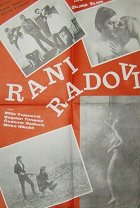Regie:
Želimir ŽilnikDrehbuch:
Želimir ŽilnikKritiken (1)
Esthetic philosopher Boris Groys knew that the utopianism of communism lay in the attempt to replace the power of capital with the power of politics, which is nothing more than words - all power of discourse. This film is precisely the best dream of the performative power of speech: slogans are not templates, but a medium that brings events to life on the screen - it truly requires the viewer's attention to the moments when the characters' speeches generate a new, disjointed narrative sequence, symbolically connecting the jumpy editing with the inevitably unnatural/violent leap from immaterial word to material action. The true meaning of Mao's "Great Leap Forward" lies precisely here, and the Yugoslav hippie communists of the fourth way - the path between capitalism, Soviet state socialism, and Chinese Maoism of cultural revolution - try to find the mythical origin of phrases here, their real embodiment in existing political regimes has (?) profaned them forever. How else than to once again transform phrases into actions - but differently, newly, disjointedly: both in relation to previous attempts and to previous film art. Why couldn't Godard's Week-End become the basis for a new kind of film, just as Lenin's turn of the helm became the basis for a new concept of societies: that capitalism ultimately triumphed and suffocated the bad alongside the good that emerged in the field of real socialism and cinema Marxism, is nothing but a sad legacy of the present, which will make this film incomprehensible to many contemporary viewers. And this is characteristically true for a film that is so ironically critical of the former real socialism (albeit constructively!) that many anti-communists would envy: another example of how the baby is thrown out with the bathwater...
()
